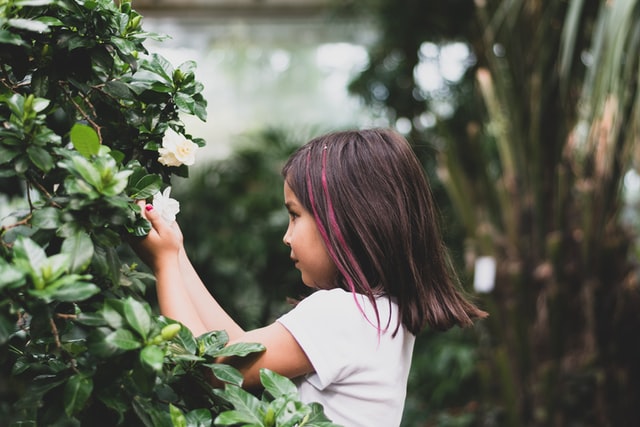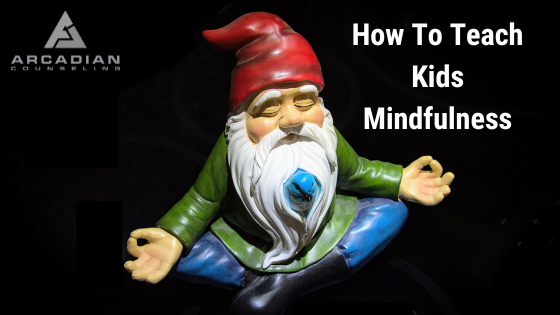How to teach kids mindfulness might sound like an oxymoron, but you might be surprised to learn than children as young as 2 years old can learn mindfulness techniques!
You might even be asking yourself, how is it that when they WANT to, (like playing video games or watching cartoons), kids seem to have a laser focus attention span? But the next minute, getting them to pay attention is harder than getting them to close the refrigerator door!
While getting kids to pay attention and focus can be more frustrating than trying to understand your company’s new health insurance plan, there is an answer to the madness: mindfulness
Mindful Kids are Happier Kids
By now, countless studies have shown kids who participate in mindfulness programs are happier. And the sooner you get kids started with mindfulness, the easier it is for them to develop a capacity to be calm and centered when life throws them stressful situations.
What does mindfulness in kids look like in real life?
Imagine a “normal” 8-year old response to a scary, overwhelming, and generally unpleasant situation. Maybe they’re getting ready to try out for the baseball team or get a cavity filled at the dentist. If your 8-year old is like most, getting them to stay or remain calm might resemble something like two monkeys fighting over the last banana!
However, an 8-year old who practices mindfulness meditation knows to stop, close their eyes, and breathe deeply to get themselves calm and focused.
Clearly, these two outcomes are vastly different. That’s because meditation and deep breathing exercises actually change the physiology of the brain. Instead of kids reacting emotionally to a difficult situation (being controlled by their emotions), children can learn to control their impulses and reactions to that situation.
So how do you get kids to practice mindfulness when you can’t even seem to get them to clean their room without losing your mind?
How To Teach Kids Mindfulness
1. Help them discover their inner experience

If you want to learn how to teach kids mindfulness you have to help them understand what’s happening to them internally – i.e., emotionally.
Spend time helping your little one to understand what is happening to their body during stressful and calm situations. Ask them to explore their emotions. Maybe they don’t know how to label them. Grab a list of emotions (with example faces is even better) and have them point some feelings out. The more insight and understanding they have into their inner experience, the better they will be to control their responses to external experiences.
2. Breathe with Them
Practice deep breathing with your kiddo. You can do it while driving or before putting them to bed at night. Model for them how to relax. Don’t know how to yourself? Check out this or this.
Slowly breathe in deeply through the nose and then slowly exhale through the mouth. Have them pay attention to the sensations in their body as the inhale and exhale. The feel of the air going in the nose. The sensation of their chest rising when they inhale. The feeling of their stomach sinking as they exhale. Set the example by doing it whenever you feel frustrated or upset. Have them do it with you each time.
3. Be a Good Example

If you want to know how to teach kids mindfulness you need to learn it yourself and be an example for them.
Trust me, your kid won’t want anything to do with being mindful and calm when they see you out of control. Are you always yelling at other drivers? Do you lose your shit when the kids track mud in the house? When the Amazon driver kicks your package in the middle of the street in front of your house instead of dropping on your front porch, do you go bananas threatening everyone under the sun?
If so, then it’s clearly time to try deep breathing and meditation yourself. Be an example. If your child sees your or your partner handling stress in healthier ways, they will be way more likely to try it themselves.
While it will take some effort to get your kid to commit to practicing mindfulness, the results that it will bring to their life are completely worth it. If you’re struggling to stay connected to the present moment yourself or need help teaching your kids how to, then find an awesome therapist you like and trust to help you figure it out!
James Killian, LPC is the Principal Therapist & Owner of Arcadian Counseling in Greater New Haven, CT where they specialize in helping over-thinkers, high achievers, and perfectionists reduce stress, increase fulfillment and enhance performance so they can move From Surviving To Thriving.


